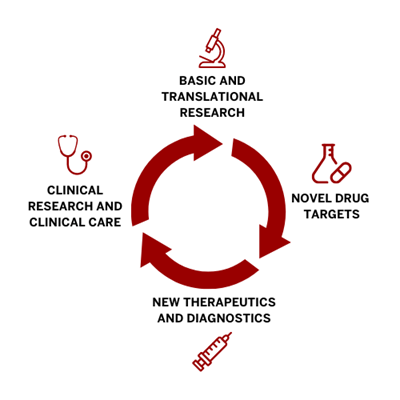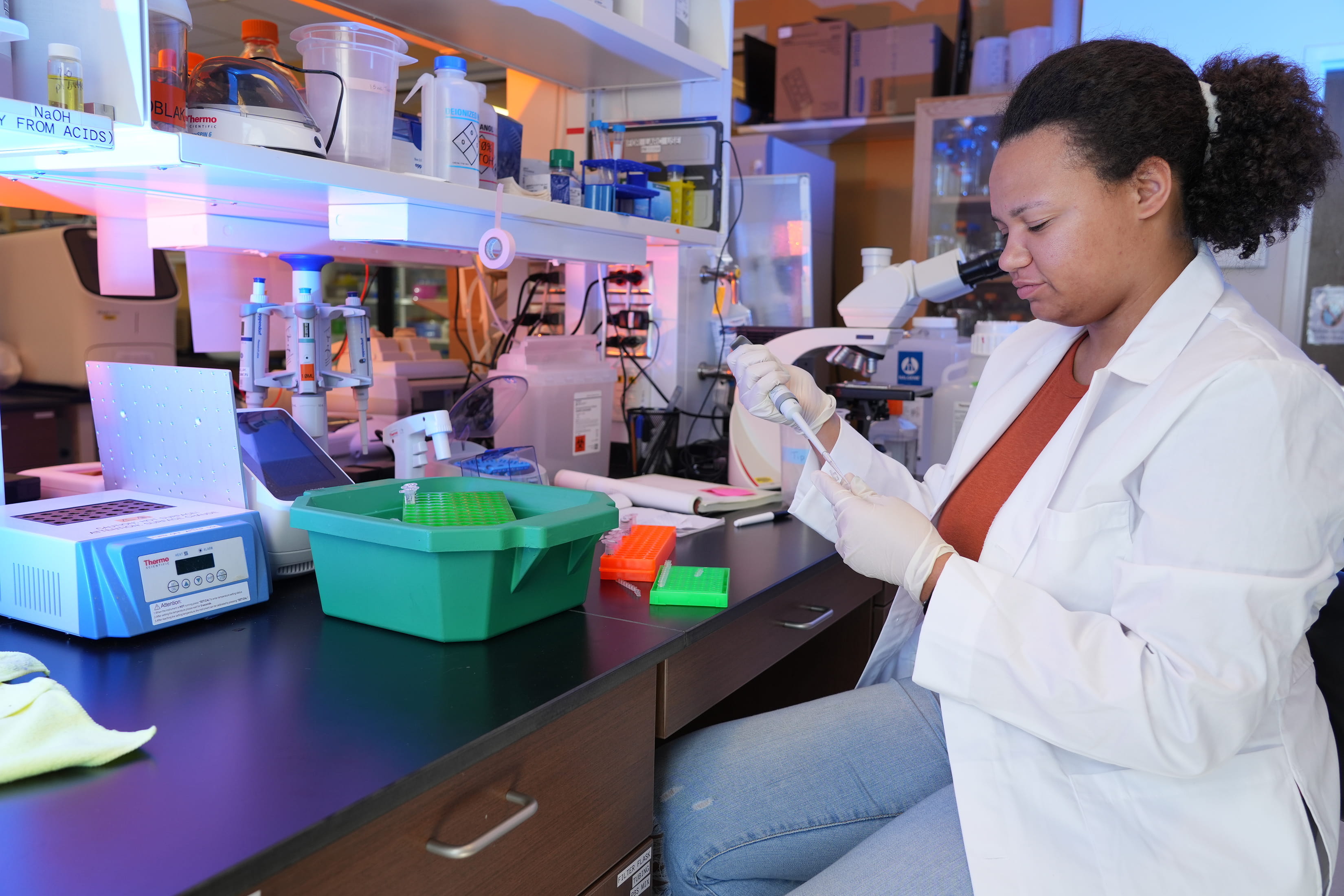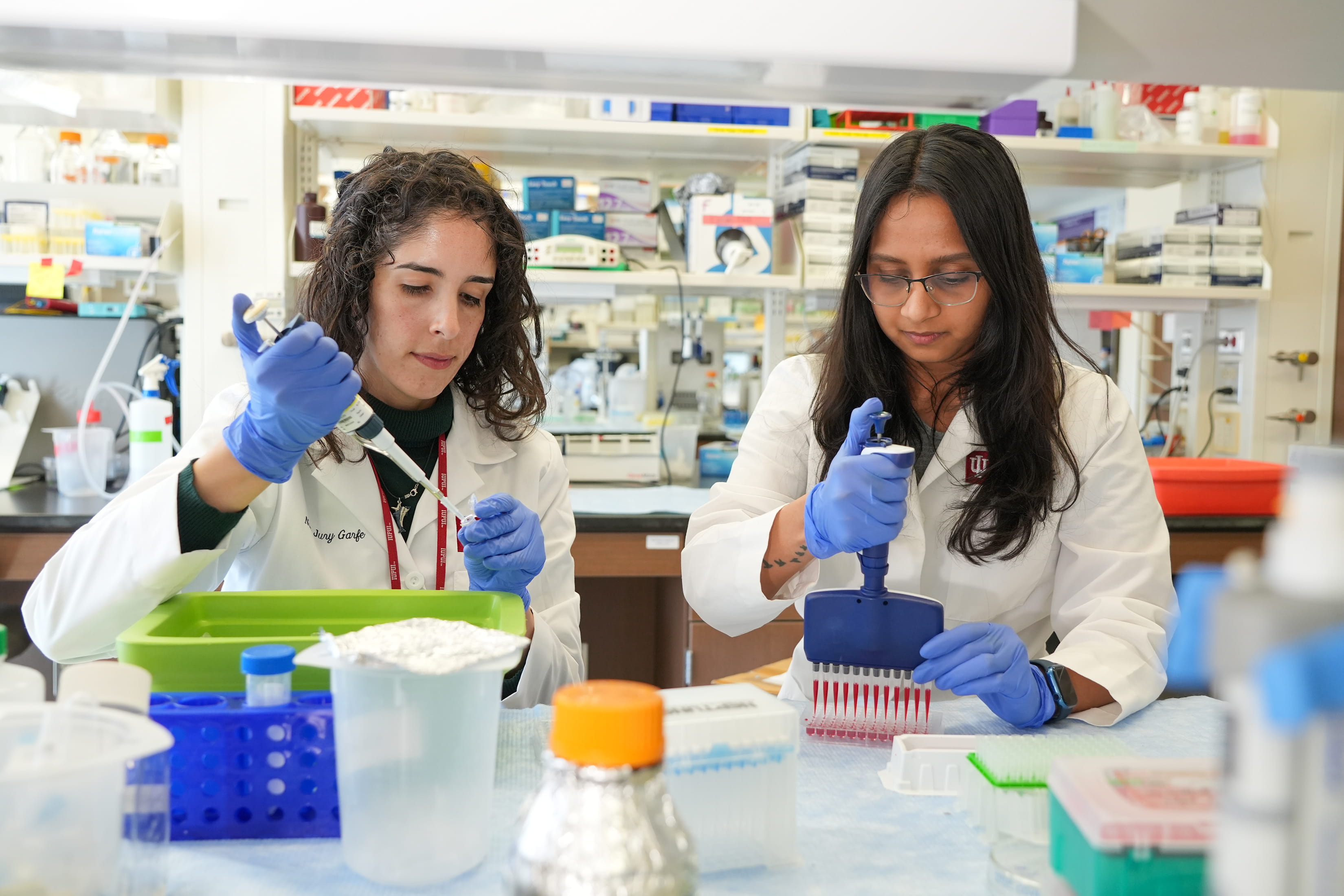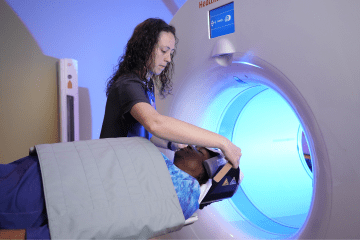
Alzheimer’s disease research at Indiana University School of Medicine encompasses the full spectrum of research — basic and translational research, drug discovery, testing new therapeutics and clinical research. Faculty investigators have a strong and long-standing commitment to neurodegenerative research and receive generous federal grant awards from the National Institutes of Health as well as international support to advance their research. Collaborative research teams at IU School of Medicine also share resources and facilities that enable interaction and innovation.
State-of-the-art collaborative facilities
The IU Health Neuroscience Center (Goodman Hall) integrates clinical neuroscience (Neurology, Psychiatry, Neurological Surgery, Physical Medicine and Rehabilitation and Neuroradiology) and a clinical research center in one building. The Neuroscience Center is attached to the Neurosciences Research Building, home to the Stark Neurosciences Research Institute, a collaborative organization that advances the discovery of neuroscience-related disease mechanisms and therapeutic strategies across Indiana University campuses throughout the state of Indiana. The Indiana Alzheimer's Disease Research Center, also located within the Neuroscience Center, is one of only 33 centers in the United States solely committed to Alzheimer’s research.
The Indiana Biosciences Research Institute is a public-private partnership that supports the growing biomedical research community within Indianapolis, including creation of novel biotechnology companies.
The Regenstrief Institute develops, conducts and disseminates impactful scientific research in health systems and across communities with a focus on aging through the Center for Aging Research.







